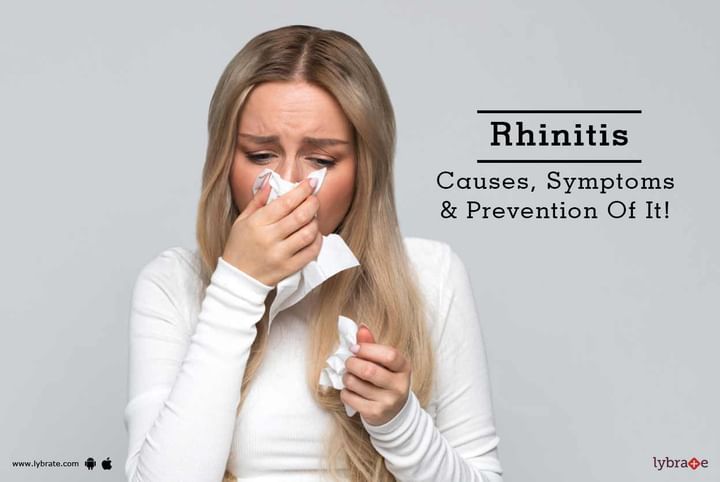Rhinitis - Causes, Symptoms & Prevention Of It!
Rhinitis is an irritable medical condition where the mucous lining of a person's nose swells up. The term is more of a category and less of a definitive way to describe something specific. Rhinitis involves a host of other conditions that affect the mucous membranes of your nose. If you were not aware, common cold is also a kind of rhinitis. Rhinitis can cause acute touchiness in the inner lining of the nose leading to continuous discharges from one's nose. It can also lead to clogging of your nose or inflammation of the internal tissues.
Rhinitis can be divided under two main types; allergic and non- allergic rhinitis. Allergic rhinitis, popularly known as hay fever is caused due to contact with allergens that are usually undamaging. However, in case of non- allergic rhinitis the symptoms take after that of the allergic type but no particular causal factor can be identified.
Factors that can increase your propensity to suffer from rhinitis of any kind are:
- Pollen from flowers
- Inhaling certain substances can be harmful; smell of certain chemicals is bad too.
- Both active as well as passive smoking can be detrimental
- High levels of air pollution contributes to the risk
- Weather conditions affect your health; a windy yet humid weather can aggravate rhinitis.
Common symptoms of rhinitis can be listed as below:
- A person suffering from this condition might catch a cold all of a sudden.
- People, usually little children, might even face high fevers.
- Your nose tends to be runny. After the infection subsides, chances of a thick, sticky discharge are more.
- Exhaustion is also felt in combination with headaches and teary eyes.
- The nature of your nasal discharge tells the doctor if you are suffering from an allergy or from a viral infection.
A few preventive measures to aid you against rhinitis:
- Rhinitis can be communicable and in most cases it is so. Therefore a person should not share his or her utensils and other personal things such as towels or handkerchiefs with any other person.
- One should not be in close proximity of another infected person.
- Hands are the most common sources of infection. One must wash his or her unclean hands before touching the face.



+1.svg)
